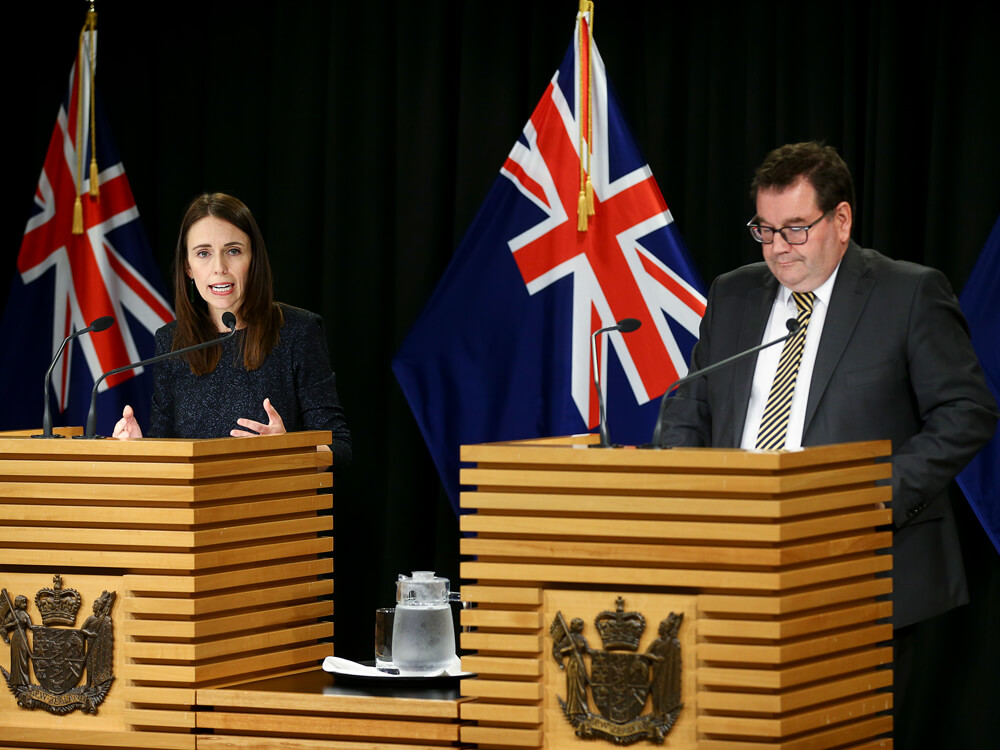Mar 24, 2020 Politics
OPINION: The coalition government has set in motion a huge spending package that it hopes will help New Zealand weather the coming public crisis, but one of its central planks could wind up being one of its weakest, writes community lawyer Joe Nunweek.
Call it Keynesianism, call it the spirit of Savage and Fraser – I’m not minded to cling to jargon and tenuous analogy too hard in a pandemic. Put simply, if you believe that government’s there to step up and catch us when we’re falling – and you think that support should be quick, and unconditional – last week probably made you feel pretty sanguine about the Labour-Greens-NZ First Coalition.
Their initial stimulus package last week was an impressive list, and apparently the start rather than the end. Benefits will go up by $25 a week – permanently, and winter utility support will double. $500 million will go into the already strained public health system, nearly half of it almost immediately. Most significantly, there was a huge sum of money poured into keeping businesses afloat, primarily by way of wage subsidies that employers would sign up to receive to the tune of up to nearly $600 a week.
This focus makes a certain amount of sense. As plenty of people find out the hard way, there is no minimum right to redundancy payments under NZ law. Caught between direct one-time payments to workers who lost their jobs and trying to make sure more people had continuity of employment, you can understand the motivation from a policy perspective aimed at eventual recovery.
The scheme is gracefully simple at first blush – open to any business, in any region, that will demonstrate a 30 percent downturn in business in the second half of the financial year. A number of freelancers or the essentially self-employed have anecdotally already described the ease of applying. Many have already been paid. In truth, this is what a lot of “business” looks like in 2020 – your gig-to-gig mate – and it’s great that the Coalition just extended this without a second thought, as other Western governments veer from one hapless big bailout to another.
But there are anecdotal stories now surfacing of employers who are getting the government grants and then turning around and laying staff off immediately. To receive it, they had to agree to a declaration that “using best endeavours, retain the employees named in [the] application in employment on at least 80% of their regular income for the period of the subsidy”. The subsidy is repayable if you were not or stop being entitled to the subsidy, but stops short of establishing a requirement to repay it pro-rata for workers you don’t keep on.
They additionally have to have taken “active steps” to mitigate the impact of Covid-19 on their business activities (the declaration suggests this could involve engaging with your bank or the local Chamber of Commerce).
Under commercial contract law, “best endeavours” does have a meaning, and generally requires a party with an obligation to take all available steps to fulfill that obligation that a prudent, determined and reasonable person would take. This can include financial cost. But were you to do your workers dirty, it’s not a given that a government entitlement requiring best endeavours would be interpreted the same way if someone was prosecuted for misuse of funds, not a given that the government will proactively enforce, prosecute and investigate, and not a given that many employees who find themselves laid off from labouring jobs a month from now will understand their boss had received money earmarked to keep them in their positions.
Why the lack of teeth in this? A little more time and hard chat with a union wage theft organiser or two (and even some very candid employers!) would have given the government a clear indicator of the sort of safeguards that needed to be created. Perhaps a few more days during which sole trader businesses with an effective workforce of uno were able to get immediate forms of accessible support, while the exact terms of conditions of paying people on the basis they keep paying people were ironed out.
The naivety on show might speak to the kind of calibre of (business) people that Cabinet ministers spend a lot of their downtime with – a clutch of small cafe and boutique owners who have been successful at scale and have cultivated an altruistic circle. It’s what the mums of this world would classify as the “groovy” or “funky” little sector. These are the kind of people who, from my adjacent experience, do stuff like stop taking pay home themselves in lean times before they let good workers go. You might have already seen owner-operators like these posting their resolve to keep afloat and keep their teams together. To be clear, this is courageous and commendable, but any assumption this is just what all businesses will do out of some code of honour lacks the hard material analysis you’d expect a party of labour to have.
It should be noted that the scheme doesn’t just create issues should an employer cynically take the money and run. Your best endeavours could simply be pretty crappy – some people just aren’t great at being able to keep staff on via incomptence and not malice. Or, things could go from bad to worse and a lot of businesses could go under anyway, at which point the money that’s been paid would start to look more like a pre-emptive version of the Australian General Employee Entitlements and Redundancy Scheme (government funds where a business can’t pay a period of severance itself). In the worst case of graft and poor oversight, the upshot of this could be a a do-over where money effectively has to be be given over again, a further stimulus to people who are now out of work.
The stakes are high. On Monday afternoon, Jacinda Ardern announced unprecedented public restrictions that run counter to a recent history of relative freedom of association and movement. The amount of buy-in and peer reinforcement required to make this work is immense: the police might be able to break up a beach rave, but it will fall on us and our neighbours to break up the day-to-day flows of transmission and infection. The considerable social and psychological sacrifices to do this are easier to bear if you’re able to believe we’re all at doing it at least a little tough. If everything has shut down around you, you’re getting the benefit of a society in spite of losing all its visible trappings – considerable government spending to try and keep your job open in a month’s time.
A perception that the game is somehow rigged and money is going to those who need it least (and dishonestly) destroys this fragile new pact, with literally deadly consequences. The fact that that Air New Zealand was given a lifeline loan of nearly a billion dollars by its majority public shareholder days ago only to now plan to cut its staff by thousands will not have been lost on ordinary people – any suggestion that even a minority of smaller businesses are doing the same in microcosm, and may not face accountability, could be deeply destablising.
Labour have realised that the life on the other side of this needs to be one worth living, and to their credit they are rushing out ways to do that. But if it’s left indirect and unaccountable, a business support program that lets businesspeople evade risk without the offset of clear wider social benefits could bring the whole thing crashing down. No one ever saved a henhouse by giving a fox babysitting money.






